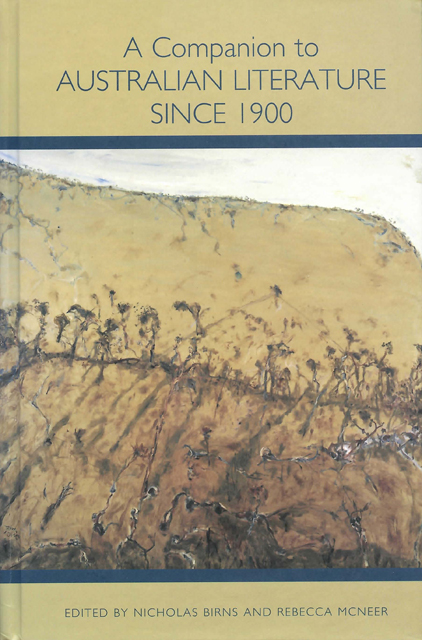Book contents
- Frontmatter
- Dedication
- Contents
- Chronology of Main Events in Australian History, 1901–2005
- Acknowledgments
- Note on the Cover Illustration and Artist
- Introduction
- Part 1 Identities
- Part 2 Writing Across Time
- Part 3 International Reputations
- Part 4 Writers and Regions
- Part 5 Beyond the Canon
- Notes on the Contributors
- Index
6 - Asian-Australian Literature
Published online by Cambridge University Press: 10 March 2023
- Frontmatter
- Dedication
- Contents
- Chronology of Main Events in Australian History, 1901–2005
- Acknowledgments
- Note on the Cover Illustration and Artist
- Introduction
- Part 1 Identities
- Part 2 Writing Across Time
- Part 3 International Reputations
- Part 4 Writers and Regions
- Part 5 Beyond the Canon
- Notes on the Contributors
- Index
Summary
Literature Written by Australians of Asian descent presents a range of explorations in the field of hybridity. This category is, as a consequence, difficult to define in strictly nationalistic terms as “Asian- Australian literature”: where Australian literature is the controlling noun and “Asian” functions as an adjective. Some Asian-Australian writers are Australian-born, some are first-generation Australians, while others trace their descent through several generations; some write in English, others do not. For reasons of space, this essay deals only with anglophone Asian- Australian writers; Wenche Ommundsen quotes an estimate that “around 200 writers of Chinese descent live in Australia, most of them writing in Chinese” (Ommundsen, 94). Such writers are not treated here. The “Asia” encompassed by Asian-Australian writers is protean and is changing as patterns of Asian immigration to Australia change. “Asia” in an Australian context is generally taken to refer to the Far East or to Southeast Asia, but with increasing migration from South Asia (India, Pakistan, Bangladesh, and Sri Lanka), it now refers to the whole continent. The question of how Asia is to be defined is of particular urgency in Australia where, as Yuangfang Shen argues in Dragon Seed in the Antipodes, “people of Asian descent tend to be lumped together regardless of national origin” (Shen, 123). The ascription of “Asianness,” regardless of individual background or national inheritance, is an expression of Australia’s enduring anti-Asian racism, and we should be keenly aware of this problem when approaching Australian writers of Asian heritage.
Any discussion of Asian-Australian relations, literary or otherwise, must be prefaced with some mention of the restrictions placed on Asian immigration for most of the twentieth century, under the aegis of the 1901 Immigration (Restriction) Act or so-called “White Australia policy.” The exclusion of Asian immigrants coincided with the establishment of the Commonwealth of Australia, and commentators such as Ien Ang have noted that anti-Asian sentiment has been a defining characteristic of Australian nationalism and national identity. Historically, anti-Chinese policy was the topic of the first instance of intra-colonial cooperation.
- Type
- Chapter
- Information
- A Companion to Australian Literature since 1900 , pp. 105 - 126Publisher: Boydell & BrewerPrint publication year: 2010



